- Home
- Charles Bukowski
Ham On Rye
Ham On Rye Read online
Ham On Rye
Charles Bukowski
"In what is widely hailed as the best of his many novels, Charles Bukowski details the long, lonely years of his own hardscrabble youth in the raw voice of alter ego Henry Chinaski. From a harrowingly cheerless childhood in Germany through acne-riddled high school years and his adolescent discoveries of alcohol, women, and the Los Angeles Public Library's collection of D. H. Lawrence, Ham on Rye offers a crude, brutal, and savagely funny portrait of an outcast's coming-of-age during the desperate days of the Great Depression."
Charles Bukowski
Ham On Rye
1
The first thing I remember is being under something. It was a table, I saw a table leg, I saw the legs of the people, and a portion of the tablecloth hanging down. It was dark under there, I liked being under there. It must have been in Germany. I must have been between one and two years old. It was 1922. I felt good under the table. Nobody seemed to know that I was there. There was sunlight upon the rug and on the legs of the people. I liked the sunlight. The legs of the people were not interesting, not like the tablecloth which hung down, not like the table leg, not like the sunlight.
Then there is nothing… then a Christmas tree. Candles. Bird ornaments: birds with small berry branches in their beaks. A star. Two large people fighting, screaming. People eating, always people eating. I ate too. My spoon was bent so that if I wanted to eat I had to pick the spoon up with my right hand. If I picked it up with my left hand, the spoon bent away from my mouth. I wanted to pick the spoon up with my left hand.
Two people: one larger with curly hair, a big nose, a big mouth, much eyebrow; the larger person always seeming to be angry, often screaming; the smaller person quiet, round of face, paler, with large eyes. I was afraid of both of them. Sometimes there was a third, a fat one who wore dresses with lace at the throat. She wore a large brooch, and had many warts on her face with little hairs growing out of them. "Emily," they called her. These people didn't seem happy together. Emily was the grandmother, my father's mother. My father's name was "Henry." My mother's name was "Katherine." I never spoke to them by name. I was
"Henry, Jr." These people spoke German most of the time and in the beginning I did too.
The first thing I remember my grandmother saying was, "I will bury all of you!" She said this the first time just before we began eating a meal, and she was to say it many times after that, just before we began to eat. Eating seemed very important. We ate mashed potatoes and gravy, especially on Sundays. We also ate roast beef, knockwurst and sauerkraut, green peas, rhubarb, carrots, spinach, string beans, chicken, meatballs and spaghetti, sometimes mixed with ravioli; there were boiled onions, asparagus, and every Sunday there was strawberry shortcake with vanilla ice cream. For breakfasts we had french toast and sausages, or there were hotcakes or waffles with bacon and scrambled eggs on the side. And there was always coffee. But what I remember best is all the mashed potatoes and gravy and my grandmother, Emily, saying, "I will bury all of you!"
She visited us often after we came to America, taking the red trolley in from Pasadena to Los Angeles. We only went to see her occasionally, driving out in the Model-T Ford.
I liked my grandmother's house. It was a small house under an overhanging mass of pepper trees. Emily had all her canaries in different cages. I remember one visit best. That evening she went about covering the cages with white hoods so that the birds could sleep. The people sat in chairs and talked. There was a piano and I sat at the piano and hit the keys and listened to the sounds as the people talked. I liked the sound of the keys best up at one end of the piano where there was hardly any sound at all - the sound the keys made was like chips of ice striking against one another.
"Will you stop that?" my father said loudly.
"Let the boy play the piano," said my grandmother. My mother smiled.
"That boy," said my grandmother, "when I tried to pick him up out of the cradle to kiss him, he reached up and hit me in the nose!"
They talked some more and I went on playing the piano.
"Why don't you get that thing tuned?" asked my father. Then I was told that we were going to see my grandfather. My grandfather and grandmother were not living together. I was told that my grandfather was a bad man, that his breath stank.
"Why does his breath stink?"
They didn't answer.
"Why does his breath stink?"
"He drinks."
We got into the Model-T and drove over to see my Grandfather Leonard. As we drove up and stopped he was standing on the porch of his house. He was old but he stood very straight. He had been an army officer in Germany and had come to America when he heard that the streets were paved with gold. They weren't, so he became the head of a construction firm.
The other people didn't get out of the car. Grandfather wiggled a finger at me. Somebody opened a door and I climbed out and walked toward him. His hair was pure white and long and his beard was pure white and long, and as I got closer I saw that his eyes were brilliant, like blue lights watching me. I stopped a little distance away from him.
"Henry," he said, "you and I, we know each other. Come into the house."
He held out his hand. As I got closer I could smell the stink of his breath. It was very strong but he was the most beautiful man I had ever seen and I wasn't afraid. I went into his house with him. He led me to a chair.
"Sit down, please. I'm very happy to sec you."
He went into another room. Then he came out with a little tin box.
"It's for you. Open it."
I had trouble with the lid, I couldn't open the box.
"Here," he said, "let me have it."
He loosened the lid and handed the tin box back to me. I lifted the lid and here was this cross, a German cross with a ribbon.
"Oh no," I said, "you keep it."
"It's yours," he said, "it's just a gummy badge."
"Thank you."
"You better go now. They will be worried."
"All right. Goodbye."
"Goodbye, Henry. No, wait…"
I stopped. He reached into a small front pocket of his pants with a couple of fingers, and tugged at a long gold chain with his other hand. Then he handed me his gold pocket watch, with the chain.
"Thank you. Grandfather…"
They were waiting outside and I got into the Model-T and we drove off. They all talked about many things as we drove along. They were always talking, and they talked all the way back to my grandmother's house. They spoke of many things but never, once, of my grandfather.
2
I remember the Model-T. Sitting high, the running boards seemed friendly, and on cold days, in the mornings, and often at other times, my father had to fit the hand-crank into the front of the engine and crank it many times in order to start the car.
"A man can get a broken arm doing this. It kicks back like a horse."
We went for Sunday rides in the Model-T when grandmother didn't visit. My parents liked the orange groves, miles and miles of orange trees always either in blossom or full of oranges. My parents had a picnic basket and a metal chest. In the metal chest were frozen cans of fruit on dry ice, and in the picnic basket were weenie and liverwurst and salami sandwiches, potato chips, bananas and soda-pop. The soda-pop was shifted continually back and forth between the metal box and the picnic basket. It froze quickly, and then had to be thawed.
My father smoked Camel cigarettes and he knew many tricks and games which he showed us with the packages of Camel cigarettes. How many pyramids were there? Count them. We would count them and then he would show us more of them.
There were also tricks about the humps on the camels and about the written words on the package. Camel cigarettes were magic cigarettes.
"Daddy," my mother asked, "aren't we going to run out of gas?"
"No, there's plenty of god-damned gas."
"Where are we going?"
"I'm going to get me some god-damned oranges!"
My mother sat very still as we drove along. My father pulled up alongside the road, parked near a wire fence and we sat there, listening. Then my father kicked the door open and got out.
"Bring the basket."
We all climbed through the strands of the fence.
"Follow me," said my father.
Then we were between two rows of orange trees, shaded from the sun by the branches and the leaves. My father stopped and reaching up began yanking oranges from the lower branches of the nearest tree. He seemed angry, yanking the oranges from the tree, and the branches seemed angry, leaping up and down. He threw the oranges into the picnic basket which my mother held. Sometimes he missed and I chased the oranges and put them into the basket. My father went from tree to tree, yanking at the lower branches, throwing the oranges into the picnic basket.
"Daddy, we have enough," said my mother.
"Like hell."
He kept yanking.
Then a man stepped forward, a very tall man. He held a shotgun.
"All right, buddy, what do you think you're doing?"
"I'm picking oranges. There are plenty of oranges."
"These are my oranges. Now, listen to me, tell your woman to dump them."
"There are plenty of god-damned oranges. You're not going to miss a few god-damned oranges."
"I'm not going to miss any oranges. Tell your woman to dump them."
The man pointed his shotgun at my father.
"Dump them," my father told my mother. The oranges rolled to the ground.
"Now," said the man, "get out of my orchard."
"You don't need all these oranges."
"I know what I need. Now get out of here."
"Guys like you ought to be hung!"
"I'm the law here. Now move!"
The man raised his shotgun again. My father turned and began walking out of the orange grove. We followed him and the man trailed us. Then we got into the car but it was one of those times when it wouldn't start. My father got out of the car to crank it. He cranked it twice and it wouldn't start. My father was beginning to sweat. The man stood at the edge of the road.
"Get that god-damned cracker box started!" he said. My father got ready to twist the crank again. "We're not on your property! We can stay here as long as we damn well please!"
"Like hell! Get that thing out of here, and fast!"
My father cranked the engine again. It sputtered, then stopped. My mother sat with the empty picnic box on her lap. I was afraid to look at the man. My father whirled the crank again and the engine started. He leaped into the car and began working the levers on the steering wheel.
"Don't come back," said the man, "or next time it might not go so easy for you."
My father drove the Model-T off. The man was still standing near the road. My father was driving very fast. Then he slowed the car and made a Uturn. He drove back to where the man had stood. The man was gone. We speeded back on the way out of the orange groves.
"I'm coming back some day and get that bastard," said my father.
"Daddy, we'll have a nice dinner tonight. What would you like?" my mother asked.
"Pork chops," he answered.
I had never seen him drive the car that fast.
3
My father had two brothers. The younger was named Ben and the older was named John. Both were alcoholics and ne'er-do-wells. My parents often spoke of them.
"Neither of them amount to anything," said my father.
"You just come from a bad family, Daddy," said my mother.
"And your brother doesn't amount to a damn either!"
My mother's brother was in Germany. My father often spoke badly of him.
I had another uncle, Jack, who was married to my father's sister, Elinore. I had never seen my Uncle Jack or my Aunt Elinore because there were bad feelings between them and my father.
"See this scar on my hand?" asked my father. "Well, that's where Elinore stuck me with a sharp pencil when I was very young. That scar has never gone away."
My father didn't like people. He didn't like me. "Children should be seen and not heard," he told me.
It was an early Sunday afternoon without Grandma Emily.
"We should go see Ben," said my mother. "He's dying."
"He borrowed all that money from Emily. He'd pissed it away on gambling and women and booze."
"I know, Daddy."
"Emily won't have any money left when she dies."
"We should still go see Ben. They say he has only two weeks left."
"All right, all right! We'll go!"
So we went and got into the Model-T and started driving. It took some time, and my mother had to stop for flowers. It was a long drive toward the mountains. We reached the foothills and took the little winding mountain road upwards. Uncle Ben was in a sanitarium up there, dying of TB.
"It must cost Emily a lot of money to keep Ben up here," said my father.
"Maybe Leonard is helping."
"Leonard doesn't have anything. He drank it up and he gave it away.
"I like grandpa Leonard," I said.
"Children should be seen and not heard,".said my father. Then he continued, "Ah, that Leonard, the only time he was good to us children was when he was drunk. He'd joke with us and give us money. But the next day when he was sober he was the meanest man in the world."
The Model-T was climbing the mountain road nicely. The air was clear and sunny.
"Here it is," said my father. He guided the car into the parking lot of the sanitarium and we got out. I followed my mother and father into the building. As we entered his room, my Uncle Ben was sitting upright in bed, staring out the window. He turned and looked at us as we entered. He was a very handsome man, thin, with black hair, and he had dark eyes which glittered, were brilliant with glittering light.
"Hello, Ben," said my mother.
"Hello, Katy." Then he looked at me. "Is this Henry?"
Yes.
"Sit down."
My father and I sat down.
My mother stood there. "These flowers, Ben. I don't see a vase."
"They're nice flowers, thanks, Katy. No, there isn't a vase."
"I'll go get a vase," said my mother. She left the room, holding the flowers.
"Where are all your girlfriends now, Ben?" asked my father.
"They come around."
"I'll bet."
"They come around."
"We're here because Katherine wanted to see you."
"I know."
"I wanted to see you too, Uncle Ben. I think you're a real pretty man."
"Pretty like my ass," said my father. My mother entered the room with the flowers in a vase.
"Here, I'll put them on this table by the window."
"They're nice flowers, Katy."
My mother sat down.
"We can't stay too long," said my father. Uncle Ben reached under the mattress and his hand came out holding a pack of cigarettes. He took one out, struck a match and lit it. He took a long drag and exhaled.
"You know you're not allowed cigarettes," said my father. "I know how you get them. Those prostitutes bring them to you. Well, I'm going to tell the doctors about it and I'm going to get them to stop letting those prostitutes in here!"
"You're not going to do shit," said my uncle.
"I got a good mind to rip that cigarette out of your mouth!" said my father.
"You never had a good mind," said my uncle.
"Ben,"my mother said, "you shouldn't smoke, it will kill you."
"I've had a good life," said my uncle.
"You neve
r had a good life," said my father. "Lying, boozing, borrowing, whoring, drinking. You never worked a day in your life! And now you're dying at the age of 24!"
"It's been all right," said my uncle. He took another heavy drag on the Camel, then exhaled.
"Let's get out of here," said my father. "This man is insane!"
My father stood up. Then my mother stood up. Then I stood up.
"Goodbye, Katy," said my uncle, "and goodbye, Henry." He looked at me to indicate which Henry.
We followed my father through the sanitarium halls and out into the parking lot to the Model- T. We got in, it started, and we began down the winding road out of the mountains.
"We should have stayed longer," said my mother.
"Don't you know that TB is catching?" asked my father.
"I think he was a very pretty man," I said.
"It's the disease," said my father. "It makes them look like that.
And besides the TB, he's caught many other things too."
"What kind of things?" I asked.
"I can't tell you," my father answered. He steered the Model-T down the winding mountain road as I wondered about that.
4
It was another Sunday that we got into the Model-T in search of my Uncle John.
"He has no ambition," said my father. "I don't see how he can hold his god-damned head up and look people in the eye."
"I wish he wouldn't chew tobacco," said my mother. "He spits the stuff everywhere."
"If this country was full of men like him the Chinks would take over and we'd he running the laundries…"
"John never had a chance," said my mother. "He ran away from home early. At least you got a high school education."
"College," said my father.
"Where?" asked my mother.
"The University of Indiana."
"Jack said you only went to high school."
" Jack only went to high school. That's why he gardens for the rich."
"Am I ever going to see my Uncle Jack?" I asked.

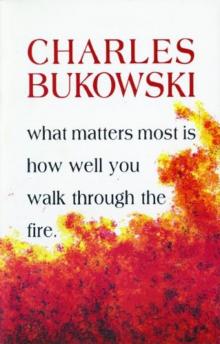 Burning in Water, Drowning in Flame
Burning in Water, Drowning in Flame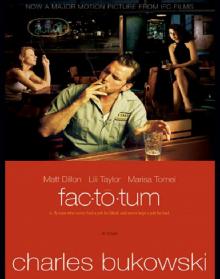 Factotum
Factotum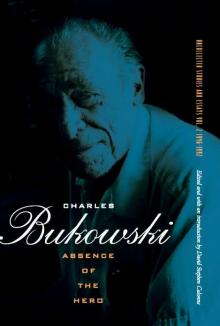 Absence of the Hero
Absence of the Hero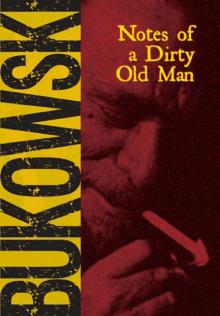 Notes of a Dirty Old Man
Notes of a Dirty Old Man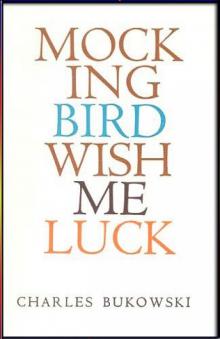 Mockingbird Wish Me Luck
Mockingbird Wish Me Luck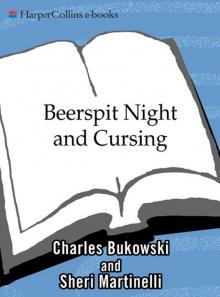 Beerspit Night and Cursing
Beerspit Night and Cursing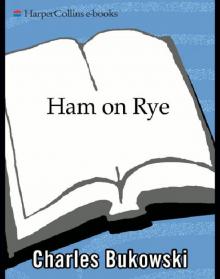 Ham on Rye: A Novel
Ham on Rye: A Novel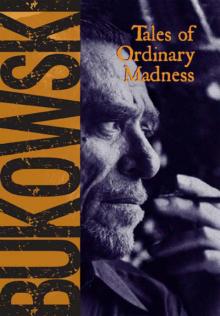 Tales of Ordinary Madness
Tales of Ordinary Madness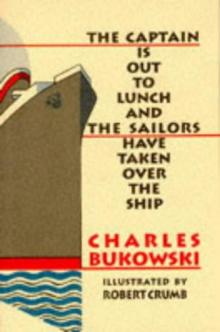 The Captain Is Out to Lunch and the Sailors Have Taken Over the Ship
The Captain Is Out to Lunch and the Sailors Have Taken Over the Ship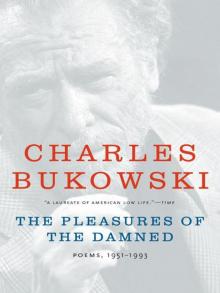 The Pleasures of the Damned
The Pleasures of the Damned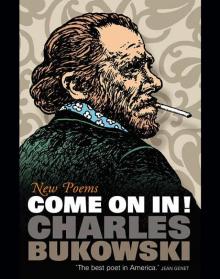 Come on In!
Come on In!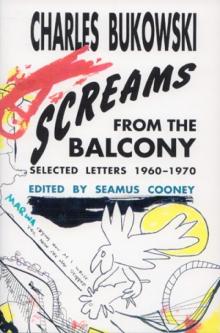 Screams From the Balcony
Screams From the Balcony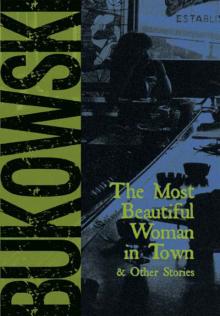 The Most Beautiful Woman in Town & Other Stories
The Most Beautiful Woman in Town & Other Stories New Poems Book 3
New Poems Book 3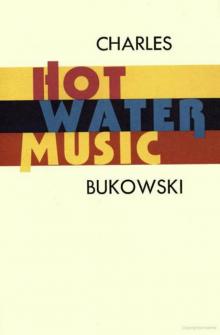 Hot Water Music
Hot Water Music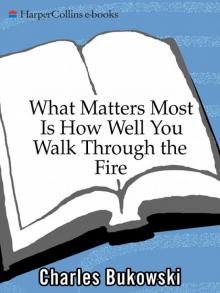 What Matters Most Is How Well You Walk Through the Fire
What Matters Most Is How Well You Walk Through the Fire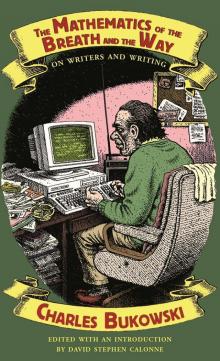 The Mathematics of the Breath and the Way
The Mathematics of the Breath and the Way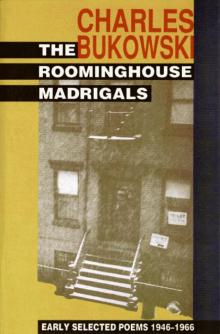 The Roominghouse Madrigals: Early Selected Poems, 1946-1966
The Roominghouse Madrigals: Early Selected Poems, 1946-1966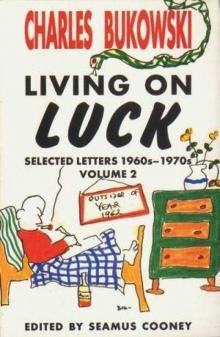 Living on Luck
Living on Luck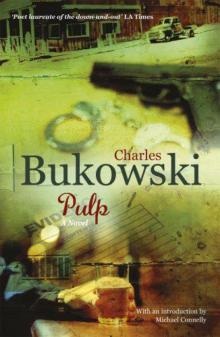 Pulp
Pulp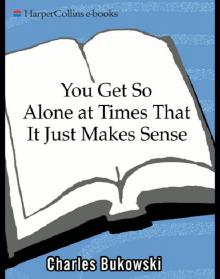 You Get So Alone at Times That It Just Makes Sense
You Get So Alone at Times That It Just Makes Sense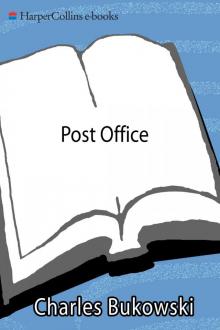 Post Office: A Novel
Post Office: A Novel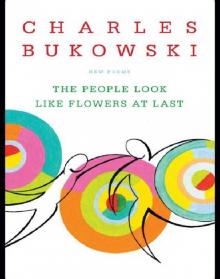 The People Look Like Flowers at Last: New Poems
The People Look Like Flowers at Last: New Poems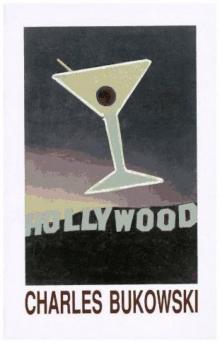 Hollywood
Hollywood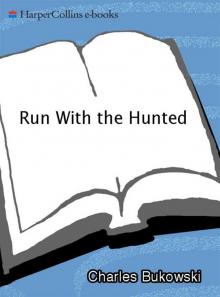 Run With the Hunted: A Charles Bukowski Reader
Run With the Hunted: A Charles Bukowski Reader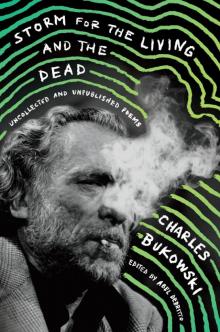 Storm for the Living and the Dead
Storm for the Living and the Dead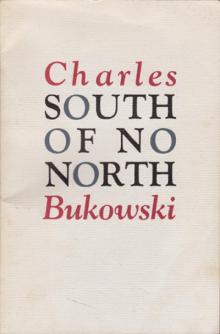 South of No North
South of No North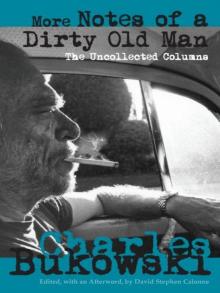 More Notes of a Dirty Old Man: The Uncollected Columns
More Notes of a Dirty Old Man: The Uncollected Columns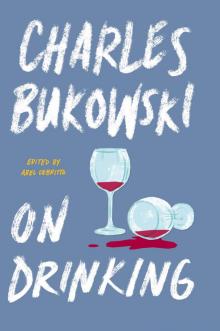 On Drinking
On Drinking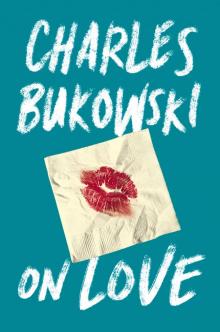 On Love
On Love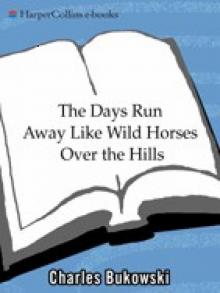 The Days Run Away Like Wild Horses
The Days Run Away Like Wild Horses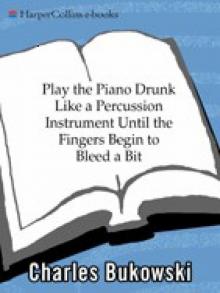 Play the Piano
Play the Piano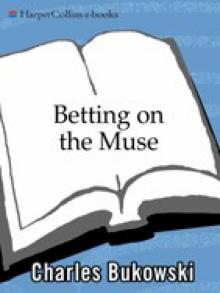 Betting on the Muse
Betting on the Muse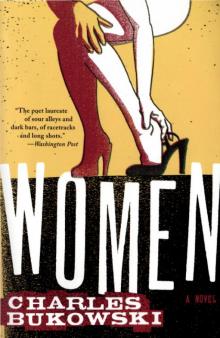 Women
Women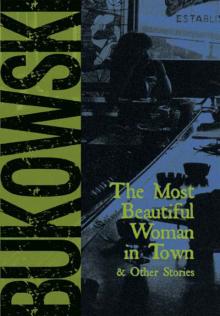 The Most Beautiful Woman in Town
The Most Beautiful Woman in Town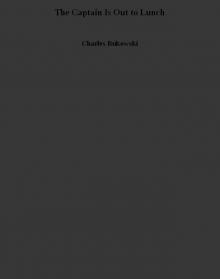 The Captain Is Out to Lunch
The Captain Is Out to Lunch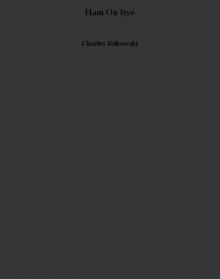 Ham On Rye
Ham On Rye New Poems Book Three
New Poems Book Three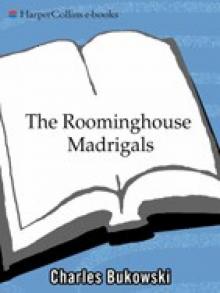 The Roominghouse Madrigals
The Roominghouse Madrigals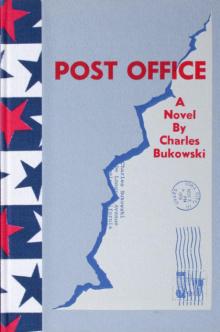 Post Office
Post Office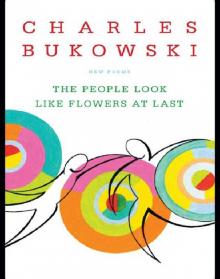 The People Look Like Flowers At Last
The People Look Like Flowers At Last